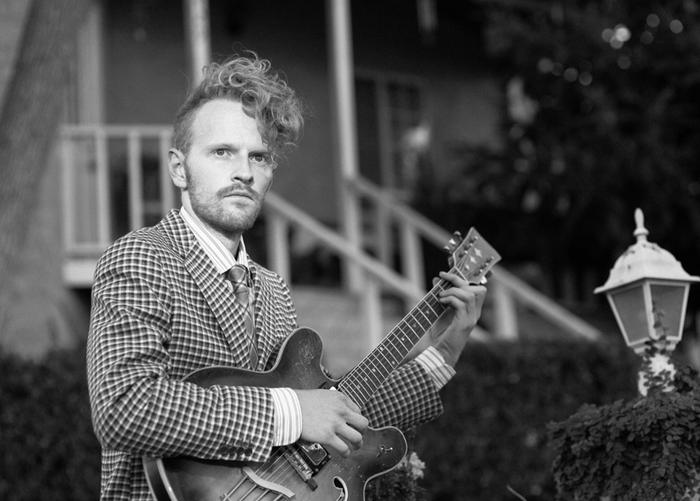
Genre:Singer-Songwriter
Paul Bergmann would never call himself a singer-songwriter. While the Los Angeles-based solo artist sings and writes songs, he doesn’t find the term endearing. Such a label makes it easy to identify a type of solo artist, but it also conjures up a desperate effort to impress an American Idolized public. And Bergmann isn’t writing songs to be so “right now.” He’s taking influence from the deep cuts, the soulful cuts, the timeless cuts of American pop—Phil Spector girl groups to Elliott Smith B-sides—Leonard Cohen’s vulnerability to Nebraska-era Springsteen’s simplicity. But Bergmann’s going full Wittgenstein, searching for and establishing a new timelessness. Writing and performing primarily acoustic-centered songs—stripped down, vulnerable, presented as they are—they either mean something to the listener, or they don't. He’ll walk down the street, but you have to meet him halfway, ok? Now is Bergmann influenced by Orbison? Of course. Are there vestiges of Cash and Dylan? Obviously. Is he crooning? Yes, he’s crooning. But is he re-dishing yesteryear aesthetics just to trigger pleasant nostalgia? His latest series of videos for the Romantic Thoughts EP suggests otherwise. Take “Drunk (Alone, And New)” for example. It stars Bergmann, adorned by only his signature blazer and his boxer shorts, dancing about in his bedroom; a belabored pink filter implies a humorous dystopia, a confluence of music’s sweet past and tomorrow’s hilariously doomed future. It’s his sincerity without modesty, his humor at the gallows, that’s earning Bergmann coverage from the major indie blogs. Wall Street Journal, Noisey, and Pitchfork have gladly served up his video and track premieres. Daytrotter invited him to record a quintessential intimate live set. KCRW, L.A.’s scrutinizing indie radio station, has championed his work. And he's collaborated with innovative, clandestine artists like Emily Kokal of Warpaint. But where Dylan and Cohen were immersed in the parallel art form of poetry, Bergmann's tangentially immersed in visual media. He deftly directs his own videos, taking intentionally simple concepts and trusting his instinct will guide a successful, collaborative execution. Better yet, given his resistance to making art purely to be liked, Bergmann’s still earned a profile in Los Angeles Magazine, a lovably tactful, glossily mainstream publication. Kudos! At the end of the day, Paul Bergmann makes music for itself, making it all the more enjoyable. It’s there because it just had to be there. And that’s a powerful reason to write and sing any song, any time.